Nanotechnology Institute - National Research Council (NANOTEC -Cnr)
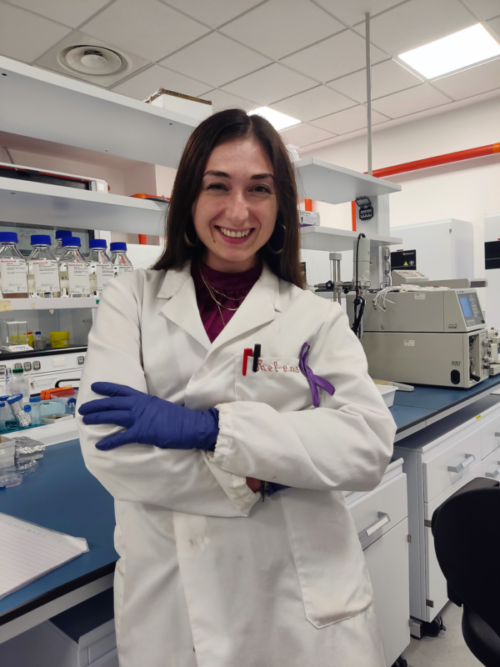
I am a material specialist and an analytical chemist. My research interests include the design and characterization of composite materials, hydrogels, nanoparticles, fullerenes and their application in drug delivery, sensoristic, catalysist and energetics and the design, optimization and validation of chromatographic techniques for the environmental monitoring of pollutants such as carcinogenic endocrine disrupting compounds and drug residues.
My grandmother was a doctor and she thought I had the right attitude to become a doctor like her, I used to answer “Grandma, I will help people making medicines”. I am very creative and I found in chemistry my natural dimension thus, I thought I could be more efficient in helping people suffering of different patologies, like cancer and diabetes, in this role. I got in touch with nanotechnology and their application in diagnostic and theragnostic during my master’s thesis… And I felt in love with this research area! I learnt how to develop material for the in-situ drug delivery and for the continuous monitoring of cancer and diabetes markers. I hope my materials can be beneficial in understanding better the pancreatic cancer progression and to help people getting personalized treatments.
I take care of developing and customizing optical sensing particles to measure, with high spatial and temporal resolution, the intracellular and extracellular concentration of oxygen and pH in in vitro patients-derived 3D models of pancreatic cancer in order to study cancer and stroma interactions and to quantify drugs efficacy. One image speaks more than hundreds of words and I find so fascinating to observe and track cells behavior adopting high resolution microscopy.
I hope our research can help patients getting personalized treatments improving the outcomes of their therapies. Many times, it is important to optimize the treatments that are already on the market rather waiting for new ones to be available. For instance, our sensing platforms can also be exploited for drug repurposing, that means we can test and investigate existing drugs for new therapeutic purposes.
Being part of the I-PCC helps the different research teams focused of the pancreatic cancer study to join forces, connect and share information to speed the understanding of the biological mechanisms involved in solid tumors like the pancreatic cancer.
I do not define myself a researcher but an artist and I always say that “the artist wears the lab coat, not the other way around”. I am very creative and the thing that on top of everything makes me happy is art. I sing since I have memory, Friedrich Nietzsche used to say “Without music, life would be a mistake” and I couldn’t agree more.
Fondazione Policlinico Universitario Agostino Gemelli IRCCS, Roma
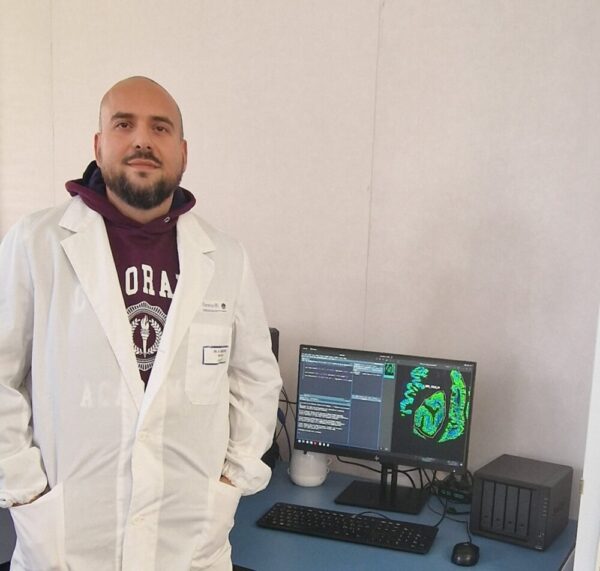
Science and Technology have always been my top interests in my life since I was a kid. I grew up watching National Geographic documentaries, hacking and tweaking my PC, and performing messy Chemistry experiments. When I had to choose my future the choice was obvious. I graduated in Biotechnologies and Human Biology and Evolution at Università degli Studi di Roma “Tor Vergata”. After my Master graduation I decided to attend a PhD course abroad to challenge myself and to learn the arising omics technologies. Luckily, I met Prof. Francesca Micci that asked me to join her group, the section for Cancer Cytogenetics at the Norwegian Radium Hospital in Oslo at the time led by Prof. Sverre Heim. I started my PhD in 2015 under the supervision of Prof. Francesca Micci and Dr. Ioannis Panagopoulos. My research focused on the genomic and transcriptomic characterization of gynecological tumors to identify recurrent genomic alterations and characterize their transcriptomic consequences on coding genes and miRNAS in order develop new diagnostic and prognostic markers. During those years I developed a set of skills ranging from bioinformatics to molecular biology; and up until now I still manage my time in the lab between the cell hood and the PC.
During the PhD I developed an increasing interest in translational oncology and therefore I decided to move my research on this field. In 2020 while I was looking for a Postdoctoral position I met Dr. Carmine Carbone and Dr. Geny Piro that invited me to join them at the Medical Oncology group at Fondazione Policlinico Universitario “Agostino Gemelli” lead by Prof. Giampaolo Tortora. Our group have several translational projects on different types of tumor, yet I’m mostly involved in pancreatic cancer research because I was fascinated, and terrified, by its incredible complex system of interactions between the cancerous cells and the cells of the microenvironment. This complexity however is an intriguing puzzle to be solved by computational biologists like me using sometimes even more complicated algorithms, that are however are my cup of tea.
As a computational biologist I’m involved in several projects from our group ranging from the development of novel therapies for pancreatic cancer to the study of its oncogenesis and development. Our group believes that a multi-omic approach is essential to provide an in-depth understanding of pancreatic cancer, therefore we use a compendium of multi-omics technologies such as targeted and untargeted proteomics and metabolomics, Nanostring platforms, single cell RNA-seq and beyond. The research project that I’m mostly involved in is the spatial transcriptomic characterization of Intraductal Papillary Mucinous Neoplasm (IPMN) that is part of Dr.Carbone AIRC MFAG project. These lesions are the precursor of pancreatic cancer and we wanted to study their degeneration from a benign neoplasm to a heinous cancer. We started thinking about the problems that usually affect projects about IPMN, such as the availability of only FFPE samples, the small dimensions of these lesions and their scarce cellularity, and we decided to move from a bulk approach to a technology with a far better resolution. We found a solution in spatial transcriptomics and in particular in the Visium FFPE application from 10X Genomics. This technology gives the opportunity to build spatially-coded RNA-sequencing libraries to obtain a spatial map of the transcriptome with a resolution of 55 µm. We built a tissue array to be analyzed with Visium gathering benign IPMN, intended as lesions originated from patients that never developed pancreatic cancer, and malignant IPMN with their associated PDAC. The entire process was not easy and took us almost 6 months to develop a robust protocol to achieve good results; but the findings that we have now are amazing. We have found the main transcription factors that lead from low-grade and indolent IPMN to the high-risk. Moreover, we found a plethora of gene markers associated with the different morphology of IPMN and their grade of malignancy. We validated these results in collaboration with ICGC on a validation cohort of 57 IPMN analyzed with GeoMx, another spatial transcriptomics solution. All together these results shed more light on the early steps of pancreatic oncogenesis and other projects started on the basis of these exciting results. In fact, we are currently testing the function of the malignancy-associated genes in IPMN patient derived organoids established by Dr.Carbone, myself, and from Prof. Vincenzo Corbo group of the Italian –Pancreatic Cancer Community (IPCC).
Pancreatic cancer gives almost no chance of survival because in almost all cases presents at the late stage of disease. Even though IPMN may be detected in advance in some cases, it is not always easy for the clinicians to understand if a lesion is malignant or not and to choose for the pancreatic resection or to wait and watch. However this period of clinical surveillance has a profound impact in the quality life of patients, that may suffer of severe anxiety and depression. Unfortunately, several studies showed tha surveillance may fail and patient develop pancreatic cancer. Despite the huge efforts that has been carried by the pancreatic cancer research community, there is no consensus about the markers that are the determinants of IPMN malignancy. If our results will be validated in other independent cohorts, not only we will have a deeper knowledge of IPMN development but we will also have prognostic markers to be evaluated at the time of decision. We hope that these markers that we have identified will help the decision making and prevent many cases of pancreatic cancer.
The I-PCC gave me to opportunity to share knowledge with researchers working on the same topic but on a different prospective. This sharing give me a new glimpse into the complexity of pancreatic cancer and make me view my projects from a bigger picture finding new ideas and strategies to tackle this incredible powerful foe.
I usually relax playing and listening music, or going out d drinking some beers with friends.
Dept Molecular Biotechnology and Health Sciences, University of Turin, Torino
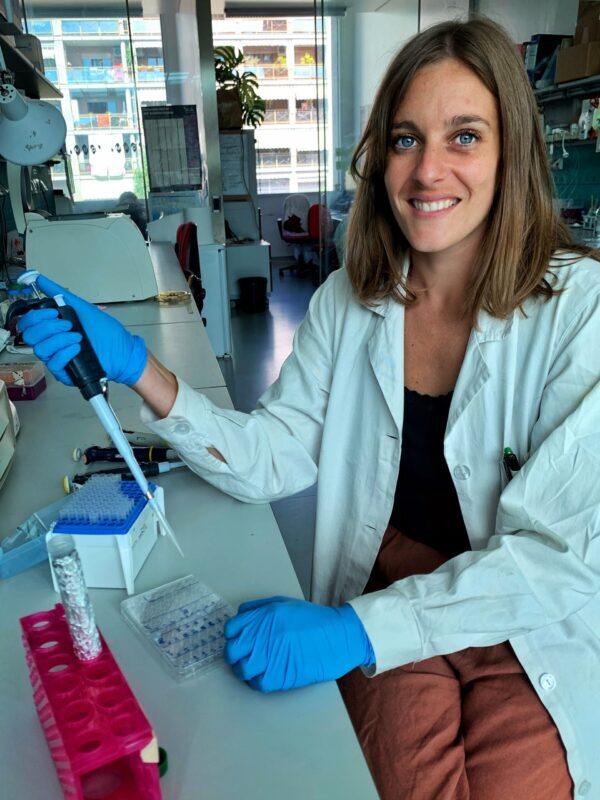
Early at school, biology was already my favorite subject and It’s very naturally that I choose to deepen my understanding of the living world and more particularly of human biology by studying Cell and Molecular biology at the University of Lille in France where I am from. There I had my first research experience in a neuroendocrinology lab focusing on how peripheric signals such as hormones are integrated in the hypothalamus to regulate essential processes such as systemic energy metabolism or the reproductive function. I then choose to challenge myself and expand my horizons by moving abroad to do my PhD. So I joined the laboratory of Prof. Paolo Porporato at the university of Torino to study a very debilitating syndrome often associated with tumor progression called Cachexia. Cachexia manifests as a massive weight loss and in particular muscle loss and is responsible for at least 20% of all cancer related death. Mechanisms of cachexia are still mostly unknown, therefore my goal was to set-up in vitro and in vivo models in order to identify molecular mechanisms underlying the development of cancer cachexia. During my PhD I also got the opportunity to join the laboratory of Prof. Laure Bindels at the Catholic University of Louvain in Belgium for 3 months, where I got introduced to the role of the gut microbiota in cancer cachexia.
Since the beginning of my PhD I have been focused on tumor cachexia, a severe syndrome characterized by the loss of muscle mass and strength. This condition is particularly present in pancreatic cancer, in which almost all patients develop this condition which, in addition to leading to strong weight loss, drastically worsens the quality of life and tolerance to therapies. I therefore decided to focus on identifying the molecules that lead the body to induce weight loss and muscle atrophy, to reduce the severity of this disease.
Pancreatic cancer is a malignant tumor, the severity of this condition partially lies in the inability to counteract the loss of muscle mass. In the end, this problem causes a strong state of fragility in the patient, up to leading to the interruption of therapies. The purpose of my project is to study the metabolic alterations that affect the muscle during pancreatic cancer and cause its progressive atrophy: to this end, I am working on the development of new study models for the characterization of tumor-induced muscular atrophy by the pancreatic tumors and to the development of screening strategies in order to identify the factors involved in the process.
With my work, I hope to identify the metabolic alterations that affect the muscle during the growth of pancreatic cancer. The ultimate goal of my research is to develop interventions aimed at limiting the cachexia affecting patients with pancreatic cancer.
In our research field, confrontation with other researchers is necessary. In particular, dealing with an aspect that does not directly analyze cancer cells, but the whole tumor-affected organism, it is necessary to interact with other researchers specifically focused on pancreatic cancer from another point of view. To this end, being part of the IPCC network is of great help to research.
I like to spend time outdoor, whereas it is trekking, cycling or kayaking or simply explore new places.
Institute of Genetic and Biophysics (IGB-CNR), Napoli
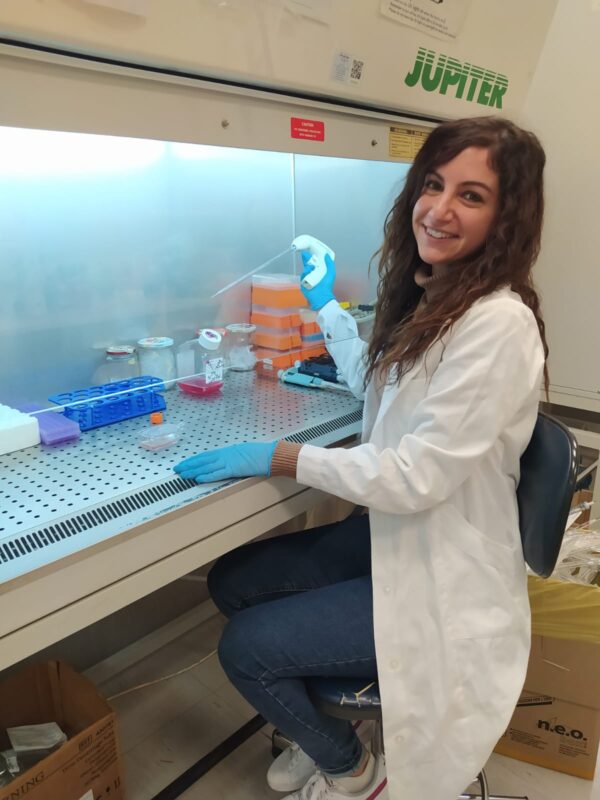
The world of natural sciences has always fascinated me, in particular cell biology and the possibility of studying the physical and chemical processes underlying the phenomena that characterize living systems and organisms. My personal experiences have strongly influenced the choice of my university career and made me motivated and passionate about research.
After graduating in Molecular and Industrial Biotechnology at the Università degli studi di Napoli “Federico II”, I started building up my experience in cancer biology during my PhD, at the Università degli studi della Campania “Luigi Vanvitelli”. The main focus of my research was the study of the anti-proliferative effects of natural compounds on different types of human cancers. During my PhD, I spent four months at the CIC bioGUNE institute in Bilbao, Spain, as part of the Erasmus traineeship program. This experience allowed me to deepen my knowledge on cancer and boosted my professional growth. After my PhD, I won a postdoctoral research fellowship in the Gastrointestinal Cancer laboratory lead by Dr. Enza Lonardo, at the Institute of Genetics and Biophysics “A. Buzzati Traverso” (IGB-ABT) of the National Research Council (CNR) of Italy, in Naples. The main research project was targeting of the cancer stem cells-tumor microenvironment crosstalk to improve pancreatic cancer prognosis. Most recently, I have won a prestigious scholarship funded by the “Fondazione Italiana per la Ricerca sulle Malattie del Pancreas” (FIMP). My project will try to clarify the role of collagen derived from cancer cells in pancreatic tumors and to stratify patients on the basis of the expression of their tumor epithelial collagen to develop personalized treatments.
I define myself as a very determined person, who loves lab life, studying and finding solutions to problems. I love teamwork and to create a peaceful working environment; I believe it is fundamental for developing new ideas and reaching notable results.
It actually happened by chance; I was looking for a Postdoctoral position in an exciting and multidisciplinary environment, which would allow me to expand my skills in cancer cell biology. Starting to work in the laboratory of Dr. Enza Lonardo allowed me to study cancer with a completely new approach, which ranges from the use of complex in vitro systems (e.g. 3D organoid cultures) to in vivo mouse models. Moreover, I joined an exciting environment that allowed me to start new collaborations and to carry out my own ideas. In fact, I recently spent two months in the Cancer Stem Cell laboratory lead by Dr. Bruno Sainz in Madrid, to study the mitochondrial metabolism of pancreatic cancer cells.
During the last three years as a Postdoctoral researcher, the main focus of my research has been to explore the contribute of TGF-β signaling to the progression, metastatic spreading and chemoresistance of pancreatic ductal adenocarcinoma (PDAC). My research project is part of the prestigious My First AIRC project (Targeting the cancer (stem) cells – tumor microenvironment crosstalk to improve pancreatic cancer prognosis) lead by Dr. Enza Lonardo. The skills I have acquired in these years of fellowship have allowed me to develop a new line of research, which aims to study the direct contribution of pancreatic cancer cells to the extracellular matrix stiffness by analyzing the role of epithelial-tumoral collagen. My project is currently being funded by the FIMP foundation.
Although significant advances have been made in the fight against pancreatic cancer, we are far away from having successful therapies. The main goal of my project is to increase survival of pancreatic cancer patients by exploring the contribution of the tumor microenvironment to the failure of presently available oncological treatments. My findings will pave the way to 1) identifying additional factors/genes involved in the metastatic spreading and expressed by the different tumor cell subpopulations in vivo and in an organ specific manner, 2) improving the patient staging system, and 3) identifying ways to interfere with the metastatic process, thus opening novel ways for the development of diagnostic and therapeutic strategies for PDAC.
Being part of the Italian Pancreatic Cancer Community allowed me to undertake new collaborations with other researchers working on pancreatic cancer who also have different backgrounds. I believe it is an excellent opportunity to facilitate the exchange of knowledge and also of materials.
I generally spend my free time with friends, visiting new places or going to dance.
Universita' Pisana per la Scienza, PISA
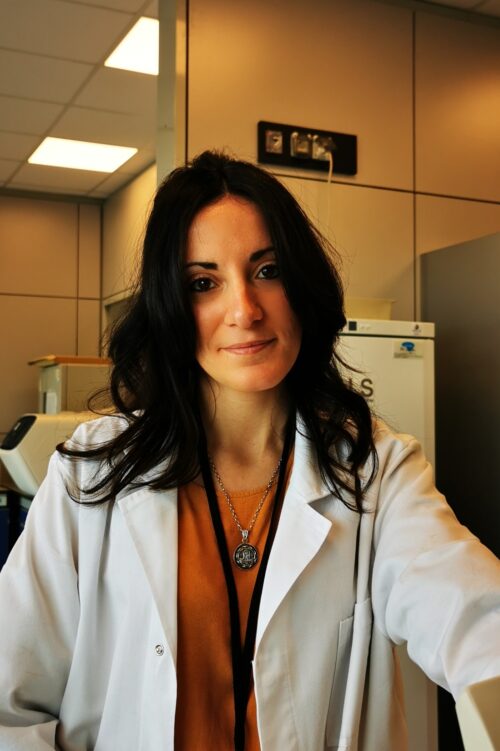
Since I was a little girl, I’ve yearned to know the why and the how of things. Growing up, that wish became interest in understanding the complexity of life. In particular, I was fascinated by how our bodies work on a cellular and molecular level under both physiological and pathological conditions. I started working in the oncology field in 2016, during my bachelor studies at the Magna Græcia University of Catanzaro. At that time, I followed a research project about the investigation of molecular mechanisms in neoplastic and primary normal cell lines. That was when I realize how little we know about cancer and how important is working in this field. Thereafter, I moved to the University of Bologna for my master studies in Biotechnology. From March to October 2018, I joined the laboratory of Medical Oncology led by Prof. Elisa Giovannetti at the Amsterdam University Medical Center in the Netherlands. During this experience, I started working to advance our understanding of how to prevent, detect, and treat pancreatic cancer. Back in Italy, I continued to do research on pancreatic cancer through a job position at Fondazione Pisana per la Scienza in Pisa (in another lab of Prof. Elisa Giovannetti) and during my PhD studies at Sant’Anna School of Advanced Studies.
It started by chance during my internship in the Netherlands. During that experience, I understood the complexity and the aggressiveness of this tumour. Despite the key progresses achieved over the past decades in the prevention and treatment of many tumors, the clinical diagnosis and treatment of pancreatic cancer remain a challenge. We are still not able to prevent and cure this cancer and more efforts are required to improve the survival of patients affected by this malignancy. For this reason, I decided to give my contribution in this field. I wish I could be one of the “fighters” that, hopefully, will win the battle against pancreatic cancer.
Pancreatic cancer (PC) is a lethal malignancy without effective screening modalities. Most of patients are diagnosed at late, more difficult-to-treat stages.
Recently, several studies suggested the potential association between microbiota and pancreatic carcinogenesis. However, the diagnostic implications of microbial contributions in pancreatic cancer remain unknown. Therefore, the overall aim of my research project is to investigate the presence of disease-specific alterations of microbiome in pancreatic cancer patients.
Our results may expand our current limited knowledge on the existence of bacteria in the pancreas tract and unravel their potential role as biomarkers for early diagnosis of pancreatic cancer. The final purpose is to improve our ability to fight pancreatic cancer, defining a solid panel of innovative biomarkers for early diagnosis of this tumor.
As a part of the Italian Pancreatic Cancer Community, we are a part of a group of researchers who want to help each other to reach the same goal, improving the scientific knowledge in order to help pancreatic cancer patients. It represents a great opportunity to join stimulating discussions with experts in our field, learn new skills, and establish fruitful collaborations. By combining our expertise, we can answer bigger and more complex scientific questions!
In my spare time, I like to play the ukulele and being in the mountain hiking with my friends.
European Institute of Oncology (IEO)
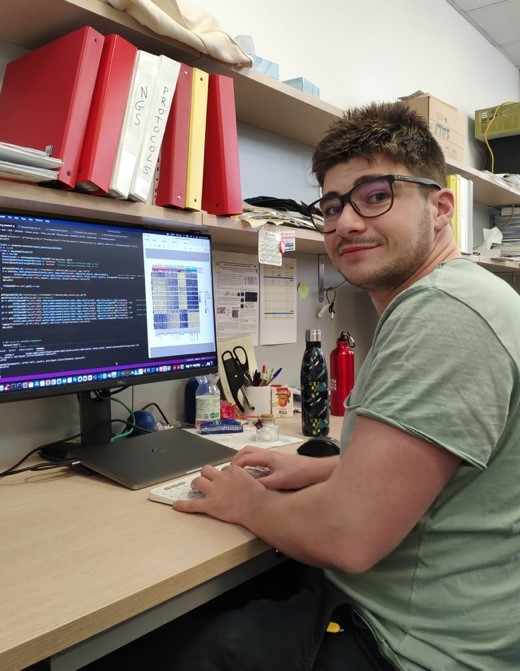
My first experience in cancer field was during my academic studies at the University of Bologna. I was intrigued by how cancer cells can trigger several molecular mechanisms and control their different cell behaviors. To address my passion, I decided to gain more experience in different research labs in international environments working on different areas of oncology. I had the chance to work abroad at the CIC bioGUNE in Bilbao and at the University of Birmingham where I improved my knowledge in cancer and I gained my strong interest in cancer research.
Back in Italy and thanks to Dr. Gioacchino Natoli and Dr. Giuseppe Riccardo Diaferia (co-founder of IPCC), I had the great opportunity to spend my PhD at the European Institute of Oncology (IEO) for the investigation on the different cellular components composing human pancreatic ductal adenocarcinoma tissues using high-throughput spatial transcriptomic approaches.
Recently, I won a prestigious AIRC fellowship for the study of the stromal heterogeneity in pancreatic ductal adenocarcinoma.
Pancreatic cancer is associated with a poor prognosis and it is predicted to become the second leading cause of cancer mortality by 2030. Since I started to work on pancreatic cancer during my PhD studies, I realized that this remarkable aggressiveness has never been fully clarified. For this reason, I decided to keep studying this disease trying to understand why it is so deadly and the current clinical treatments are so challenging. Although this process requires strong commitment and dedication, the hope that this work will bring important results for the improvement of clinical outcomes and the life quality of patients in the near future is a great self-motivation.
Pancreatic ductal adenocarcinoma is a lethal disease with an extremely aggressive behavior. The fibrotic stroma is the major component of the entire tumor volume and it is a complex and heterogeneous mixture of different cell types. Several studies highlighted that tumor-associated stromal cells can influence the tumor phenotype enhancing tumor proliferation, inhibiting the effects of chemotherapy and promoting tumor cell invasion and metastasis.
The overall aim of the project is to molecularly characterize the heterogeneous cellular components of the stromal compartment using spatial transcriptomic approaches such as laser microdissection and multiplexed in situ FISH.
I expect to identify spatial domains of distinct stromal subpopulations preferentially associated with low- or high-grade tumor cells and to obtain a mechanistic understanding of their transcriptional bases in the complex context of cellular heterogeneity in human PDAC. A molecular understanding of the stromal contribution to PDAC properties will increase the current understanding of the disease and thus will enable the reassessment of the currently available therapeutic options. The identification of novel and more efficient pharmacological approaches targeting specific cellular components will lead to the reshaping of the pancreatic tumor stroma and therefore to the improvement of patient outcomes.
Bringing together basic and translational scientists through the Italian Pancreatic Cancer Community (IPCC) is extremely important to promote scientific exchanges and research collaborations in the field of pancreatic cancer. Science is a collective process depending on the interactions between international scientists and the exchange of different viewpoints. I think Italian Pancreatic Cancer Community is a great opportunity to gain new knowledge in pancreatic cancer and to join our forces to finally defeat this deadly disease
I like to spend my spare time with my friends doing sport especially playing football, going out for a beer, watching movies together and so on. I love travelling to explore new places!
Department of Molecular Biotechnology and Health Sciences, University of Turin
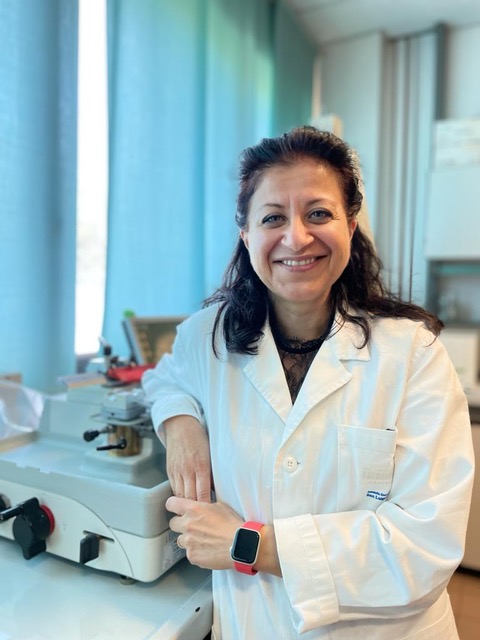
Since my undergraduate trainee I worked on tumor immunology and immunotherapy I got my Master degree in Turin and my thesis aimed at the demonstration that an anti-tumor DNA vaccine “shot” with a gene gun was efficient in delaying, and even cure, smaller established Her2+/neu breast cancers. Then I got the speciality in Clinical Pathology in Turin and moved to the University of Chieti-Pescara where I won a PhD fellowship in Basic and Applied Medical Sciences. This was the only “pause” from tumor immunology as in 2016 I moved back in Turin to join the Tumor Immunology Lab at the CeRMS, Dept of Molecular Biotechnologies and Health Sciences. Here I added my experience to that of the group to further develop novel immunotherapies for the treatment of pancreatic cancer.
It was by chance actually; I was looking for a position in Turin to get closer to my family and the lab was offering one. Immediately after I realized how it’s important to unveil new mechanisms, players and add novel pieces to the big puzzle of the pancreatic cancer. If we, scientists, join our efforts as in the past it has been for breast, colon and lung cancer, we will reach similar success.
Some years ago, the lab in which I am working developed a DNA vaccine against one pancreatic cancer-associated molecule, namely alpha-enolase, and I’m focused on designing novel combination to increase its efficacy. I have demonstrated that gemcitabine, a classical chemotherapy drug used in PDAC, increases the efficiency of the anti-tumor response induced by the enolase vaccine, but the potential combinations are really a lot! In addition, I’m working on the development of an ELISA assay to catch autoantibodies that seems to appear very early in pancreatic cancer patients: this could be of some help to anticipate the diagnosis.
Starting from the last point, it would be very important to anticipate the diagnosis in this badly disease as most of the patients are metastatic when diagnosed and this dramatically decreases the percentage of people eligible for the surgical resection, the gold standard of care. On the other hand, it is also similarly important to develop novel therapeutic strategies more efficient than the conventional ones or that improve the conventional ones. Everyone knows how bad the side effects of the chemo and radiotherapy are; therefore, the possibility to combined them with something that allows decreasing their doses would be of great impact.
I-PCC represents a step forward to succeed in the treatment of pancreatic cancer. It’s a young community which has the ambition to grow and make a great contribution to the scientific and clinical community to fight this “silent killer”. Each of us is eager for sharing own expertise, models, reagents in the attempt to foster research and results in this field.
When I’m not working, I would like to read books maybe sipping a spritz (Italian typical aperitif)… but at the moment I’m happy to dedicate myself to Giulia, my little girl, and my family in general.
Nanotechnology Institute - National Research Council (NANOTEC -Cnr)
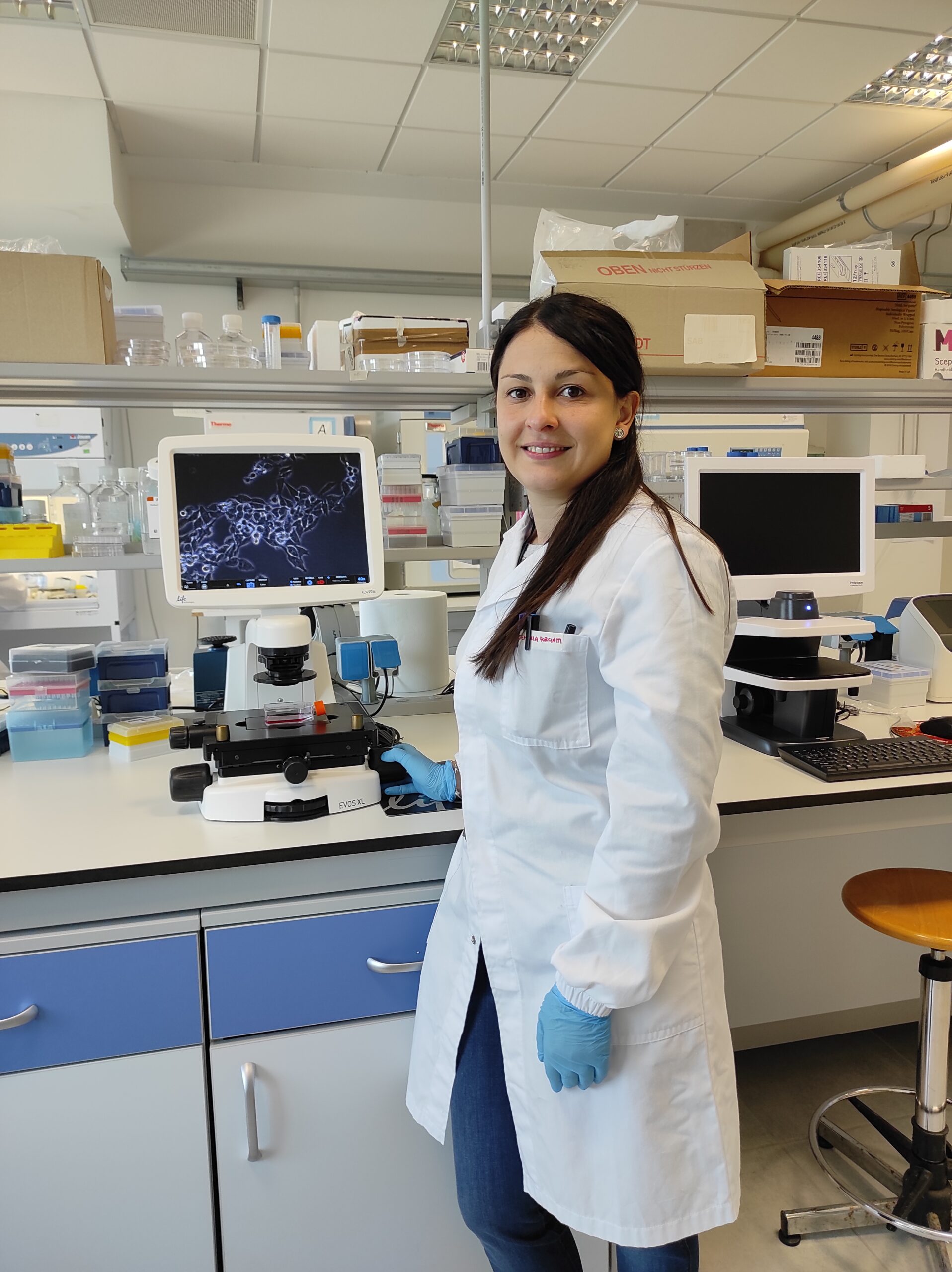
I started my journey in “science” as a Bachelor student in 2008. Science means knowledge and improvement, The world of science has always incredibly fascinated me and for this reason I chose to study Biology, obtaining my Master Degree at the University of Bari in 2014. Thereafter, I achieved the PhD in Biomolecular Medicine at the University of Verona in 2017. During these years, I studied the molecular basis of pancreatic cancer initiation and progression, focusing on the characterization of the biological features of pancreatic cancer stem cells. From March to September 2017, I joined the laboratory of “Stem Cell in Cancer & Aging” led by Prof. Christopher Heeschen at the Barts Cancer Institute (BCI, London, UK), where I continued to study the effect of new therapeutic strategies on patient-derived pancreatic cancer stem cells. On September 2019, I started a post-doctoral fellowship under the supervisor of Dr. Luigi Laghi at the Humanitas Clinical and Research Center in Milan (IT) where I conducted a translational research activity focused on the genotyping of genetic variants as modifier of pancreatic cancer progression and on their involvement in host immune response. Since September 2020, I started a prestigious ERC-founded postdoctoral fellowship at the Institute of Nanotechnology of CNR (CNR NANOTEC) under the supervisor of Dr. Loretta del Mercato.
I started by chance when my thesis supervisor encouraged me to work on 3D in vitro models of pancreatic cancer, one of the most aggressive and difficult to be treated neoplasms. From that moment I realized that there are poorly understood mechanisms driving this disease and they must be clarified in order to identify possible treatment strategies. For this reason, I decided to work every day with tenacity and constancy to learn more about this “silent killer” and be able to give patients the hope of fighting together.
My research project is part of the prestigious ERC-Starting Grant project INTERCELLMED (Sensing CELL-cell INTERaction heterogeneity in 3D tumor models: towards precision MEDicine).
I’m working on the development of 3D in vivo-like culture systems that mimic the pancreatic tumor microenvironment coupled with sensing particles for measuring intracellular and extracellular concentration of key biological analytes (i.e pH, oxygen, K+). Through live imaging and computational analyses we study tumor-stroma interactions and quantify of drugs efficacy.
Our 3D-in vitro culture systems engineered with sensing particles will be used for culturing patient-derived tumor cells and for evaluating their response to different anticancer drugs.
This approach is oriented towards precision medicine and represents a predictive model of patients’ response to personalized treatments.
Being part of the Italian Pancreatic Cancer Community is a great opportunity that allows to meet and interact with national and international researchers who, like me, work on pancreatic cancer. Ours is a team work, therefore the promotion of collaborations and the exchange of viewpoints is essential to advance knowledge on pancreatic cancer..
During my free time, I love to walk and visit new places. I like cooking, especially making cakes.
I love shopping, it relaxes me a lot!
Università di Verona
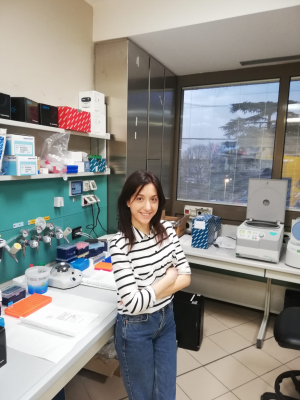
I started my journey in “science” as a Bachelor student in 2008. Science means knowledge and improvement, that is why I decided to continue my education by enrolling into Pharmaceutic Biotechnology Course at University of Perugia. I was fortunate to conduct my PhD thesis project in the laboratory of Diagnostic and Public Health, under the supervisor of Dr Claudio Bassi from 2014 to 2016. During these years, I had the possibility to join the laboratory of “Stem Cell in Cancer & Aging” led by Christopher Heeschen at the Barts Cancer Institute (BCI, London, UK) from September 2015 to August 2016. At the BCI, I got interested in using different murine preclinical models of pancreatic cancer to characterize cancer stem cells. Back to Verona, I completed my PhD and started on July 2017 a post-Doctoral fellowship under the supervisor of Dr. Vincenzo Corbo and Prof. Aldo Scarpa. In 2020, I won a prestigious fellowship from AIRC (Italian Association for Cancer Research), a great honor and opportunity.
It all started a little by chance or by destiny. I arrived in Verona in 2014, as a winner of a PhD scholarship and I started working with in vitro models of pancreatic cancer, one of the most lethal among malignant neoplasms. Confronting this reality every day, I realized that there is still a lot to do to find a cure and give patients a perspective on life. This is the reason why I decided to work and do research on pancreatic cancer: my passion for research and my tenacity led me to strongly believe that pancreatic cancer can be defeated.
I worked on establishing and characterizing three-dimensional models, called organoids, of pancreatic cancer. This research is part of an important international initiative in which we participate alongside Cold Spring Harbor Laboratory, called the Human Cancer Model Initiative. It is a consortium that aims to make tumor organoids derived from various lesions (pancreatic, breast, colon and lung cancer) available to the scientific community.
First of all, this research has made it possible to generate a large number of three-dimensional models from pancreatic cancer patients, giving the opportunity to establish organoids from different stages of the disease. This has allowed us to characterize them at the molecular and histopathological level and to understand how they are valid and innovative models for the study of the disease.
Organoids represent a major advance in personalized cancer medicine. Most patients with ductal adenocarcinoma of the pancreas die from the disease because there are currently no effective treatments. Through the systematic analysis of three-dimensional ductal models of the pancreas, we are trying to identify new therapeutic targets that will help us take an important step forward in the treatment of the disease.
Being part of the Italian Pancreatic Cancer Community is an important opportunity for people like me who have been working on pancreatic cancer for many years. In fact, it offers the opportunity to interact and collaborate with other centers of excellence (national and international) which, like ours, have been working for years on making progress in the study of pancreatic cancer.
Work takes up most of my day, but I manage in any way to carve out spaces to cultivate my passions. In my free time I like to cook, because it helps to relax and at the same time gives me satisfaction, especially when I cook for others. I also like to go running and do physical activity in general.